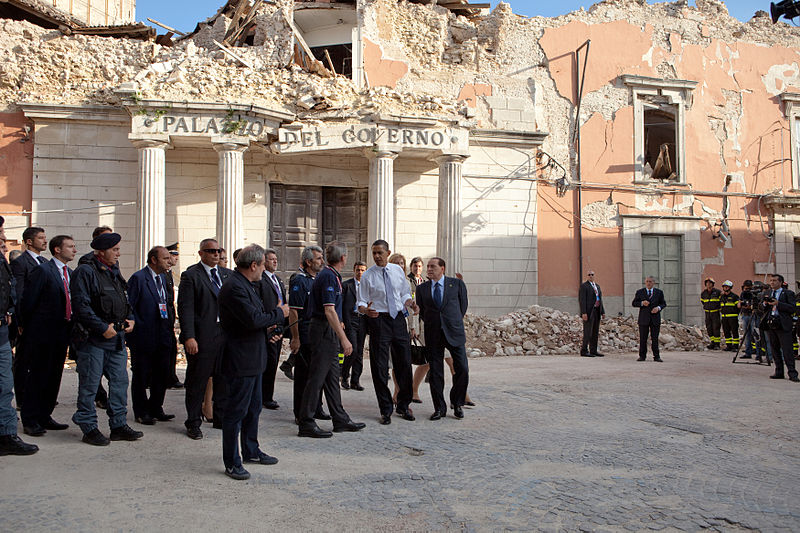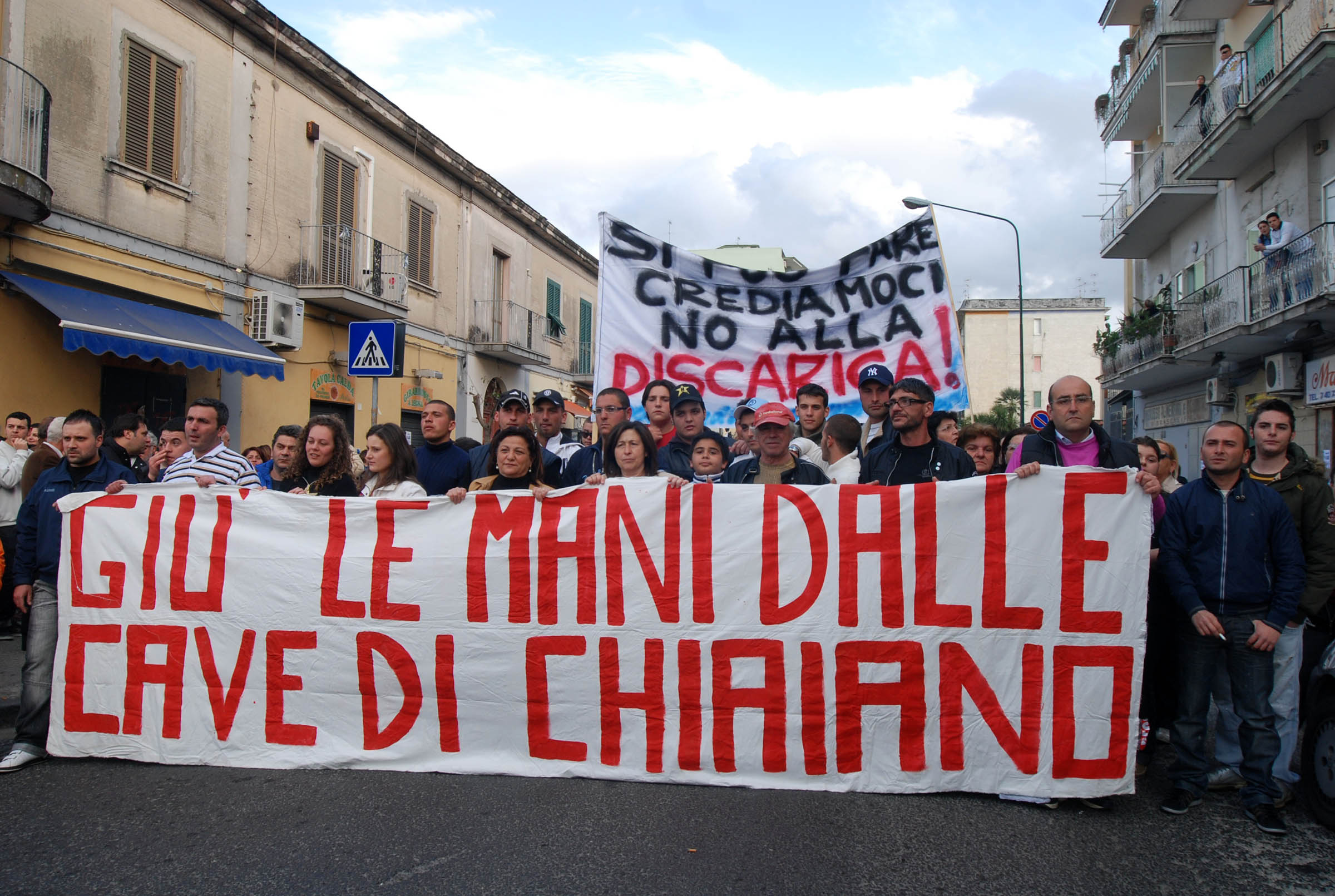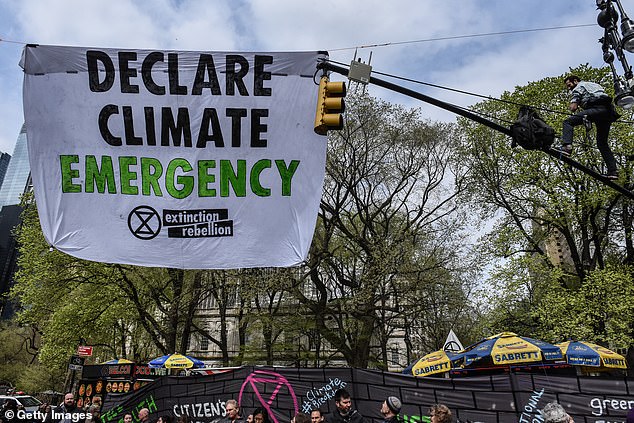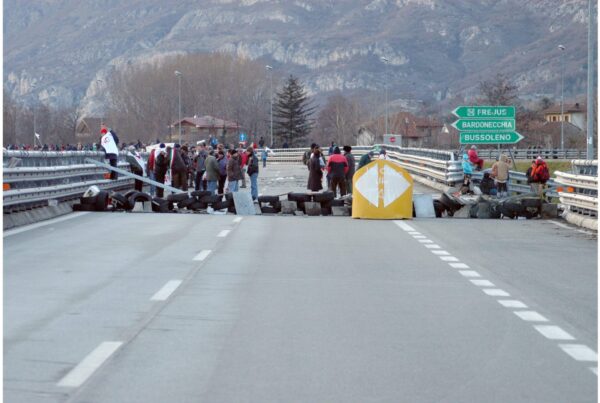By Giacomo D’Alisa
The climate emergency frame being mobilized today could prove counterproductive and dangerous, potentially undermining the very purposes of the global climate movements.
Climate activists around the world are setting up the most promising global movement of recent years. Millions of environmentally-concerned teenagers are pushing civil society and policymakers to act firmly to stop climate change and related environmental disasters. However, I maintain that the climate emergency frame could prove counterproductive and dangerous. In this essay, I want to address the narrative of a “climate emergency” proposed by the Extinction Rebellion movement (XR) and supported by the Fridays for the Future activists. While XR is an articulated and very territorialized movement, with a certain degree of autonomy on how claims are locally developed, all the local members share a general frame and three demands, the first of which is for governments to declare a climate emergency. This demand has become widely shared amongst others, such as Pope Francis, a world coalition of thousands of scientists, and politicians like Alexandria Ocasio and Bernie Sanders. Moreover, such declarations are being rapidly adopted globally: already 1,180 local governments from 23 different countries, as well as several national governments, have enacted declarations of a climate emergency.
I believe that the climate emergency frame, however, could prove counterproductive and dangerous, and could undermine the very purposes of the global climate movements. Indeed, a growing literature in political ecology suggests that the use of “emergency” in governance serves to (re)produce existing and newly emerging forms, practices and relations of power. Here is what I have learned studying processes and outcomes of decades of states of emergency in Italy.
The state of emergency in Italy: L’Aquila’s earthquake and the Campania’s waste “crisis”
Not everybody will remember when in 2009 Silvio Berlusconi as Prime Minister moved the G8 summit from the pleasant Island of Sardinia to the city of L’Aquila, the capital of the Abruzzi region in the center of Italy. Some days before he took that decision, L’Aquila had been the epicenter of a devastating earthquake. The beautiful city center was almost completed destroyed. The collapse of the magnificent campanile of San Bernardino was the symbol of such devastating event. People lost their homes and their relatives. As it usually happens in cases of socio-environmental disaster, a state of emergency was declared. However, Berlusconi did something more, he had the brilliant idea to ask the chiefs of states that some months after would fly to Italy for the G8 meeting, if they would mind to change their route and land in the ruined area of L’Aquila. All the presidents applauded the decision and agreed to join the meeting in the middle of the despair.

Then-US President Barack Obama tours the L’Aquilla disaster zone with Italian Prime Minister Silvio Berlusconi and other chiefs of state (July 8, 2009). Source: Wikimedia
Why this move was a brilliant idea? And how this relates to the risks of claiming the state of emergency, even from below, as climate activists do? For several reasons.
First, by moving the summit to L’Aquila, Berlusconi gained the consent and increased his popularity. Indeed, he was showing his interest for the tragic event, putting the worries of the earthquake victims on the top of his agenda, even the international one. He was even able to claim that the 200 million euro devoted to cover the expenses of the summit in Sardinia, would have been redirected for the immediate re-launch of L’Aquila’s reconstruction and economy.
Second, moving the summit to L’Aquila helped him to avoid any social opposition. He planned the G8 in Sardinia because the arrival of activists to an island is easier to control. But using the disastrous setting of L’Aquila to avoid riots and barricade was even more attractive. Indeed, only few thousands of activists went to L’Aquila and the march happened the day after the world leaders had flown back home. All confrontation with police was avoided, social movements expressed their solidarity to the victims of the earthquake but avoided rioting in a space of sadness and despair.
Third, thanks to the state of emergency and the re-gained consent, Berlusconi implemented a project of resettlement that has resulted in a socio-economic failure, as an investigative video report testifies. The project of resettlement was named C.A.S.E.; the Italian word for house was used as an acronym for designating an Antisismic Complex of Sustainable and Environmentally Compatible buildings. The project was worth more than $18 billion Euros and made richer those people that were laughing while the news about the tragic earthquake was spreading. Those ‘hilarious’ speculators were already thinking about to the way in which they would profit from the reconstruction of L’Aquila. Emergencies for the many are often great opportunities for the few, and this was the case in L’Aquila. All this happened in the name of sustainability and under the regime created by the state of emergency.
Back in 2009, I was investigating the so called waste crisis in Naples. The city of Naples and the region of Campania had been under a state of emergency for 15 years purportedly to solve waste mismanagement and illegal waste trafficking. During those years, a series of exceptional (ad hoc) regulations and decrees were issued by the national government and a designated commissioner. Those decrees supported specific businesses for the implementation of the main public works without respecting legal public tender, labor and environmental regulations as well as the ordinary decision-making processes. This is why the activists defined what was happening in Campania as a crisis of democracy, and not simply a waste crisis. However, many preferred to think that Berlusconi had solved the crisis because he ordered the military to clean the streets.

Protest in the Neapolitan Chiaiano district against the decision by the Berlusconi government, using the Emergency Decree for the waste crisis, to turn an abandoned quarry inside a protected nature reserve in the district, into a landfill. The decree also identified ten additional sites to turn them into landfills, declaring them sites of national strategic interest, and thus under military authority. Source: Environmental Justice Atlas (Picture by Giulio Piscitelli, 2008)
Thanks to those flaunted ‘successes’, in 2009 Berlusconi tried to privatize the National Department of Civil Protection and transform it into a corporation. He maintained that, in order to guarantee more effective and efficient interventions to respond to the increasing socio-environmental emergencies that affected Italy, the head of this Department needed more ‘agile’ instruments. The idea was to create a juridical framework that allowed to push further the plunder of state resources allocated to respond to social and environmental disasters. This project of privatization was blocked, luckily. But since then, it has been crystal clear for many Italians that emergency decrees have been systematically used by networks of powerful people to accumulate enormous quantities of wealth without respecting democratic decision-making processes and laws; and not only to respond to real socio-environmental catastrophes but also to appropriate millions of public money invested for major cultural (e.g. international expo), sporting (e.g. American cup) and religious (e.g. a Pope trip) events.
The implementation of the state of emergency has been systematically used to deceive the financial control of Italy’s Fiscal Court (which oversees public spending), to by-pass legal norms and to use the army in case of citizens’ complaints against the planned activities. This strategy makes the capital flows as much unbridled as it is possible, no matter the social, economic and environmental consequences the plans cause. This is a much more complex and underhanded project than the shock doctrine proposed by Naomi Klein. International capital and global elite make fruitful business using social shocks caused by human or by socio-environmental disasters. This doctrine refers to visible situations that scare the affected people affected and create a spatio-temporal possibility for capitalists to loot resource of a country or a region.
On the contrary, the persistent and continuous use of the state of emergency, I maintain, is a much more pernicious strategy that often occurs in parallel with the one well described by Klein. It is silent so it can be even more dangerous on the long run. It is indeed like a shadow that penetrates the legal system of social and liberal democracies with plenty of ad hoc decrees and regulations undermining their functioning. What is even more dangerous is that, contrary to the shock doctrine theses, changes favorable to capital accumulation do not happen through the use of force but more often with the consent of large part of the population, helping elites to reinforce their hegemony on social imaginaries.
From state declarations of emergency to insurgent uses of the emergency “brake”
I was reflecting on this astute strategy and its principles when studying climate actions and emergency regime in Italy in 2010. Between 2006 and 2010, more than 50 emergency regimes were declared in Italy, comprising major public events (cultural, religious etc..) and socio-environmental disasters (hydro-climatic events, floods, earthquakes, and environmental pollution). All those regimes allowed to waive laws, and plunder public resources in the name of the emergency.
I realized that it was a sort of regime parallel to the democratic one, reinforcing the hegemonic interests of the capitalist elite. A sort of dark web of democracy. I thought that the most appropriate word for this invisible and obscure regime was “Emergenciocracy”: a regime organized around the principle of the emergency. I found this consideration extremely dangerous. The global socio-environmental disaster in which we are embedded is becoming commonsense, and the global climate movements are leading the calls for a state of emergency. In this context, a global emergenciocracy could diffuse and get legitimized by the fear of the climate catastrophe.

The train that needs to be stopped, despite the fears of the icy world. From the film Snowpiercer. © Moho Films, 2013. Source: Renegade-Revolution
In sum, I find the appeal to the declaration of state of emergency incredibly dangerous. I have aimed here to raise awareness about how the state emergency works in concrete, and how it can, on the one hand, undermine even further the already fragile democratic regime, and, on the other, make the capitalist system expand its double strategy of accumulation by dispossession and contamination. Revolution cannot come with the declaration of the state of climate emergency, but instead by activating the emergency brake, as Walter Benjamin suggested in its paralipomena to the concept of history. We need to reclaim the concept of emergency, by interrupting the hegemonic expansion of capitalism and its growthmania.
Giacomo D’Alisa is a postdoctoral researcher at the Centre for Social Studies of the University of Coimbra, Portugal, and member of the Research & Degrowth collective.
Top picture: Declaring a climate emergency is the first of three demands of the Extinction Rebellion movement, which insists that governments should tell the truth about the crisis through this formal recognition. Source: Getty Images, The Daily Mail







Interesting. You left out the emergencies of the war on terrorism, the terror of the emergency of the global financial crisis and obviously the latest terror campaign that is being mounted in the current climate emergency.
Thanks Simon for your comments. State emergency for war, economic crisis or social unrest are very well studied and discussed. Theoretically by e.g. Some members of the ” Frankfurt School”. For a wider audience the Naomi Klein work I mention is all about that. My arguments is about a more nuanced process. Emergenciocracy is coming with consent and not by coercion. About your last point I am little bit uncertain, because my post is alla about the state of climate emergency.
Interesting article reminding one to be mindful. One needs to remember the CE proposed by XR is one of 3 demands and their 3rd demand of establishing citizens assemblies goes in my mind some way of addressing your concerns around CE being vehicles for undemocratic practices. Whether the CA demands are met is another discussion, however at present XR activisim is based on all 3 demands being met.
Dear Scott, yes indeed the demands of xr are three. If the three have to be implemented at the same moment then none should celebrate the declaration of the state of emergency coming alone. Probably a better strategy starts dealing with the third demand: launch a constituent process for the implementation of a popular climate assembly. It will activate the emergency brake that we need for instituting a proper revolutionary process. We cannot leave the actual implementation of the state of climate emergency to the current political-economic elite. It would be tragic if they can do with our consent.
Currently in a state of disaster emergency in Victoria, Australia [a state] , with areas larger than some European countries burning out of control across the nation, especially in New South Wales, a bigger state. But the national government is refusing to declare a state of emergency.
So we have a different problem – 1) dealing with right wing, climate sceptic politicians and getting them to recognise anthropogenic contributions to warming with massive financial commitment and policy change 2) stopping their fierce attachment to allowing more fossil fuel extraction and use by corporations and investors 3) mobilising state, voluntary, and even corporate resources to protect settlements, lives and land right now. Also 4) making sure rebuilding and protection efforts after the bushfire season are fair, just, and not corrupted.
I am not sure the Italian examples where CEs have failed have parallels here that help us with 1,2 and 3. Our national government won’t declare a climate emergency at all, or refuses to link fire to climate change – the problem is not one of declaring an emergency cynically or for less than genuine reasons.
Your focus is on point 4, and the tendency of governments and the free market to profit from emergencies. I agree with that point.
But I think we should stick with climate emergency as a good way to mobilise resistant actors and I applaud youth for raising it in a way that scientists and even political ecologists have been unable to. ‘Listen to the experts’ and the critics was never going to be enough.
My local council in Melbourne, Darebin, was the first to declare a climate emergency, anywhere. I served on a committee at the council at the time, but I was not personally involved. They are well-meaning leftists, predominantly, and have been following up on their commitments as much as higher orders of government allow them to. https://www.sbs.com.au/news/the-feed/my-council-was-the-first-in-the-world-to-declare-a-climate-emergency-here-s-why-it-might-have-been-for-nothing
Dear Simon
First of all I take the chance to express solidarity to all those people that have been hit by the tremendous forest fires in Australia.
I understand your point about the frustration that the resistance of international élite to admit human-driven climate changes can cause. As well the disaster that such attitude are causing or impeding to prevent. However, those élite will be favored by the top down policies implemented via state of emergency, if it is
not steered by concerned people and climate movements.
It is important to find way to reclaim back the concept of emergency without appealing to the most reactionary legal framework i. e. the declaration of the state of emergency by the Prime Minister.
Thanks for raising the issue that in most of the cases the declaration of state of climate emergency will be empty list of good intentions.
This is the worrisome paradox we are all trapped in.